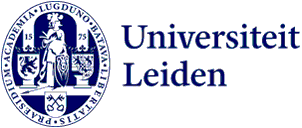Writing non-scientific parts
Funders are increasingly asking for more information than simply a research plan for a research proposal. On this page you will find an overview of resources that will help you compile this information efficiently when preparing your proposal. Some very important considerations to take into account in your quest to obtain a high score are also included.
Resources for general information
Note that this is not a checklist. Depending on the funders' requirements the relevant topics need to be addressed. The collective knowledge on these topics for a specific grant opportunity are incorporated into annotated guidelines and presentations, that can be found in the funding calendar.
As this list tries to be suitable to finding information for all non-scientific parts of the proposal as required by different funders, some topics refer to a document or page named differently. This is because funders have come up with different names for the same topic or make subdivisions within a topic that may not be obvious.
- Budget
- Communication
- Data management
- Dissemination
- Ethics
- Exploitation
- Gantt chart
- Pert diagram
- Gender
- H-index
- Impact
- Impact factors field and journals
- Intellectual Property
- Knowledge utilisation
- Open access publications
- Open access to data
- Partner information Universiteit Leiden
- Project management
- Public procurement of equipment
- Public outreach
- Research integrity
- Responsible Research and Innovation (RRI)
- Valorisation
Information in annotated guidelines
The collective knowledge on these topics for a specific grant opportunity are incorporated into annotated guidelines and presentations, that can be found in the funding calendar.
Sharing of successful proposals
The grant advisors are regularly in touch with successful applicants, who have agreed to share their successful proposal with us and may be willing to share with new applicants on a personal basis. Please get in touch with your local grant advisor, for more information. They can also help you with a personalised skeleton for the collaborative proposal you coordinate giving you direction and inspiration on what to write.
Funder goals
As explained in funding types, the drivers for funding organisations to fund research can be very diverse. Are societal problems or economic advancement the main drivers? If so, make sure you make a connection in your proposal between the research you propose and how your research results may contribute to achieving the future goals as outlined by the funder. The evaluators can only judge proposals on what is written within them, not properly addressing expected impact will cost you lessen the chance of being granted funding.
Funders' standards
Funders request information on ethics, project and data management etc. to make sure you are following not only institution and industry standards but also the funders' standards when undertaking your research. Many funders have separate ethics review panels and expect applicants to clearly describe their compliance with the requirements of the funder. In H2020 there are a set of cross-cutting priorities which need to be addressed, and specific rules you must comply with. Read annotated agreement pre-award project design for more information on this subject.
The final evaluation
Are all of these issues really taken into account in the final evaluation? It depends on the funder. In Horizon Europe this is made very clear: equal weighting is given to scientific excellence, impact and the implementation of your project evaluation criteria Horizon Europe. For NWO this is a little less clear. However, we do know particularly committees who value knowledge utilisation highly for instance.
The grant advisors regularly analyse both European evaluation reports and NWO review reports and committee comments to identify good practice when preparing these sections of the proposal. They also invite evaluators and committee members to speak about their experiences at events. The analyses and feedback from evaluators and committee members is incorporated into annotated guidelines and presentations which can be found in the funding calendar.
